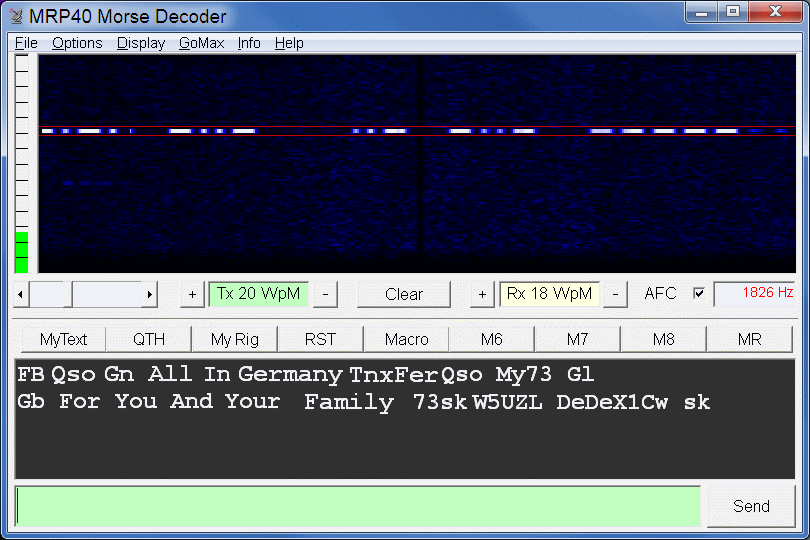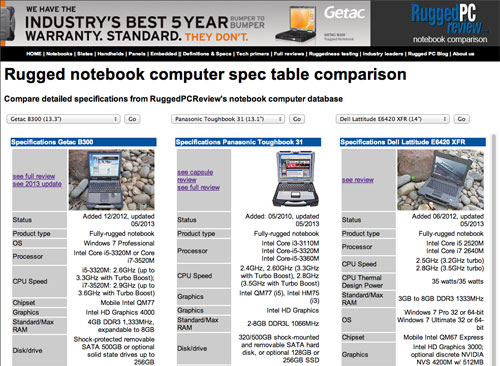
- #FREE ONLINE MORSE DECODER FOR WIN 8 HOW TO#
- #FREE ONLINE MORSE DECODER FOR WIN 8 SERIAL#
- #FREE ONLINE MORSE DECODER FOR WIN 8 SOFTWARE#
- #FREE ONLINE MORSE DECODER FOR WIN 8 CODE#
To make any text button act as a beacon just add the the string at the end of the text Right click the text button labeled as "Beacon" and adjust the Tx Beacon function with adjustable delay: Click here for instructions.ĭuring typing ahead MRP40 now continues to decode until send button is clickedĬlick -Options -TxSettings -Edit Com Port Configuration.Įdit delay to any value between (milli seconds) Alternative solution: Search on your PC the file dx8vb.dll and register that file manually. Typically re-installation of MRP40 helps. ocx files is no longer registered in the windows registry. "Runtime error 429 activex component can't creat object" Inside the window right click in some empty area and check boxes: To see the the list of windows recording devices right click on the speaker symbol in the windows taskbar.Click on Recording devices. "Runtime error 2005401480" can happen when the recording device has been removed from the list of windows recording devices. Read Article from Bryan M0OIC about MRP4062 on Or remove MRP40 from the monitored programs list in F-Secure. This is easily fixed by either disabling "advanced process monitoring" Then MRP40 is placed in the "monitored programs list" and is prevented If "deep guard is enabled" with "advanced process monitoring" enabled
#FREE ONLINE MORSE DECODER FOR WIN 8 SOFTWARE#
Please inside your anti virus software add MRP40 to the List of trusted programs
In case when running the program after pressing the "TRY" button the " program terminates without any error:

Mac running OS X 10.7 and using Windows 7 running in Parallels 7 Operating System: Win95 / Win98 / WinMe / Win2000 / Win XP / Win 7, 8, 10 / Snow Leopard / Parallels Desktop 5 In the February 2016 Journal of RSARS OM M0OIC is encouraging others to opereate CW using MRP40 without a key

To ensure galvanic isolation between computer and transceiver, we recommend using an interface box from SignaLinkĬlick here to read more details about the MRP40 featuresĬlick here and study the MRP40 online help documentation Like suggested in QST Magazine issue 02/2007. You can also build yourself a neat little interface
#FREE ONLINE MORSE DECODER FOR WIN 8 SERIAL#
Key your transceiver via the RS232 serial Com Port, or key your MRP40's menu under "Options - Tx-Settings."Ģ. PTT via Com Port by selecting the check box named "Activate PTT pin" in Note: When using AFSK for sending, one can activate the Sending speed, so a minimum bandwidth is occupied, especially for QRS The riseĪnd decay times of the CW-signals are automatically adjusted to the Sine waveform and a smooth envelope, so no annoying key clicks. Recommended: Use AFSK (audio frequency-shift) keying by sending CWĪudio to the transceiver from the computer’s sound card.
#FREE ONLINE MORSE DECODER FOR WIN 8 CODE#
Transmitting Morse Code 0.4 to 60 WPM via USB-COM Port, Soundcard and Winkeyerġ. Very good decoding of weak, noisy and fading signalsĪlmost 100% copy in heavy CW contest conditions and local QRMĭecoding now better than famous MRP37 Morse Decoder (MS-DOS version, no longer for sale!)Īutomatic tracking of "drifting" signals (via AFC)Īutomatic formatting of received text, correcting unspaced words. Or just do it yourself: Galvanic isolated PC to RIG interface Microham USB Interface II and microHam microKeyer II
#FREE ONLINE MORSE DECODER FOR WIN 8 HOW TO#
Rigblaster Advantage (click here to see on page 32 how to set) Tips 'n Tricks essential to get best decoding results with MRP40

With MRP40 you are number one on the air!. Hams use MRP40 to send and read QRQ (high-speed) CW, to help read weak DX signals, and to improve CW contest scores. For transmitting CW, the program encodes keystrokes from the computer’s keyboard. The decoded text is displayed on the computer’s monitor. MRP40 is a powerful and highly-effective ham radio software program that decodes received CW audio that has been fed to a computer’s sound card.


 0 kommentar(er)
0 kommentar(er)
